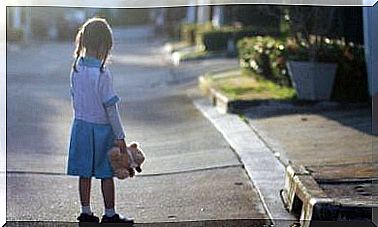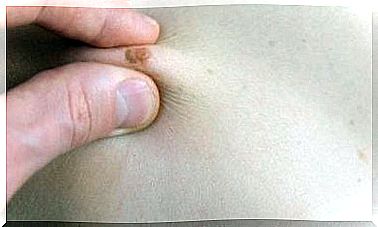Your Child Cries For Everything: What Can You Do?
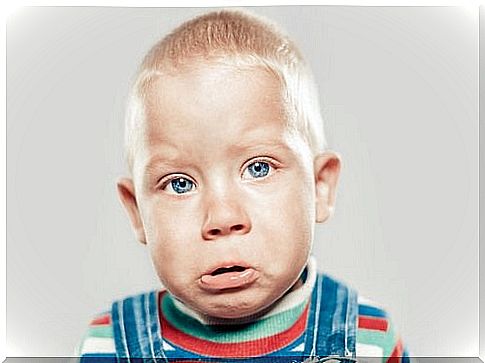
Crying is one of the most common forms of expression for babies and young children. If your child cries, this is usually a way for him to get your attention and be cared for when needed.
During this phase, many parents wonder why their child is crying when there is no apparent reason for it.
In this article we discuss a number of ideas, tips and easily recognizable situations.
Main causes for crying
Babies and young children often complain and cry when they are hungry or sleepy. They are very sensitive to these stimuli.
But there are also other causes such as:
- when your child notices that he only gets attention when he cries.
- when crying becomes the perfect way to get what he wants at all times. Parents tend to let their child have his way when tears are involved. It follows that the child eventually gets what he wants.
- if the child is physically uncomfortable. Frequently changing the baby’s position is essential to avoid annoying skin irritation. In addition, it aids in changing and makes hygienic tasks more enjoyable.
- pain. At this point, the baby is in a phase of constant adjustment and will experience pain more than once. In particular, babies tend to cry if they suffer from stomach or abdominal pain. Regardless of whether this is due to flatulence, constipation or colic.
- loneliness. Although the child is physically well, he may ask for more time, love and protection from those around him, especially from his parents.
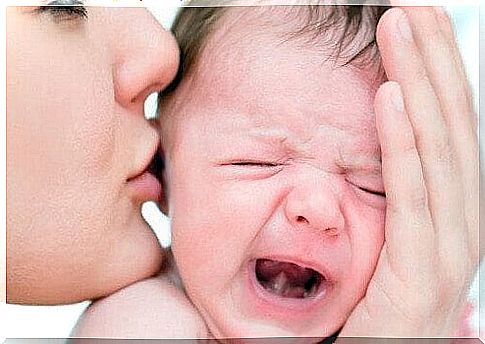
Guidelines to follow when your child cries
At first, it’s normal to not know what to do when your child is crying over everything.
Below is a list of tips and guidelines to follow. Thus, these moments do not become uncomfortable for both of you.
- Try to identify your child’s crying spells and their causes. You can do this by letting them deal with different situations and circumstances.
- If you can’t take care of him right away, try to let your child know that you realize he needs you. And also let him know that you will be with him as soon as possible.
- If your child starts talking, ask him to explain in words what is going on.
- Respond to his crying spells in different ways : with loving gestures, kisses, hugs, or motivational phrases.
Crying and the stage of imitation
Every child, at some point in their development, experiences a stage in which they develop the ability to imitate others.
In general, this occurs at a young age, as early as infancy, and lasts until about the age of 2 or even 3 years.
During this stage , children tend to imitate others when they cry or laugh. It could be labeled as a contagious effect. It can only be stopped by their own development.
This is a predictable type of behavior for certain ages. That’s why you don’t have to worry. This will disappear as the child grows and matures.
Crying and starting school
However, if this behavior lasts longer than normal, for example well into the school phase, we must pay attention to this.
At this stage, there are several reasons why your child is crying: a problem at school, an argument with a brother or sister or with friends. Or simply something he doesn’t like.
In this case, you need to be patient and know which situations disturb your child for a short period of time.
In other words, it is important to assess situations related to crying as well as the extent to which they occur.
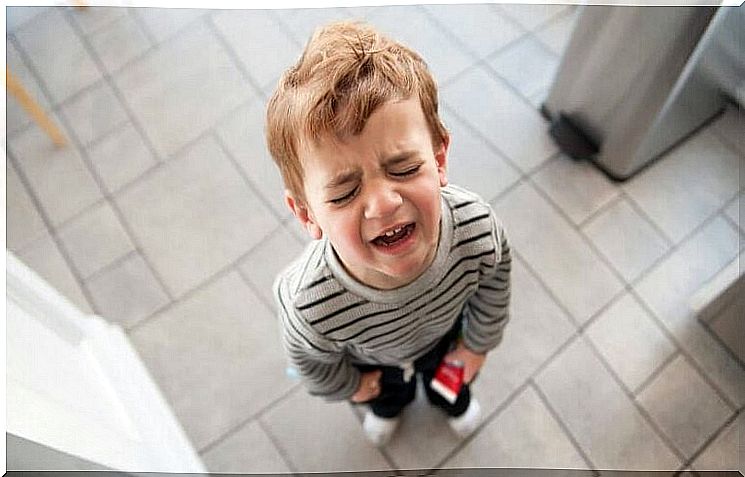
Crying and high sensitivity
Finally and the most extreme is high sensitivity. Highly sensitive children are usually very observant. So much so that they can become aroused by any stimulus.
As a result, they develop a great imagination and creative ability.
The most effective advice for helping children with these traits is to give them the opportunity to express their inner feelings.
Most importantly, they can show their feelings to the world. To help them do this, we need to remove all obstacles.
The phase where your child cries for everything really does pass. During this period, parental figures become fundamental pillars of support. This is because they prevent unpleasant and uncomfortable situations, both for the family but especially for the child.
The behavior that parents display when dealing with a crying child is decisive. It is extremely important to follow the correct procedure for the child to overcome this stage.

